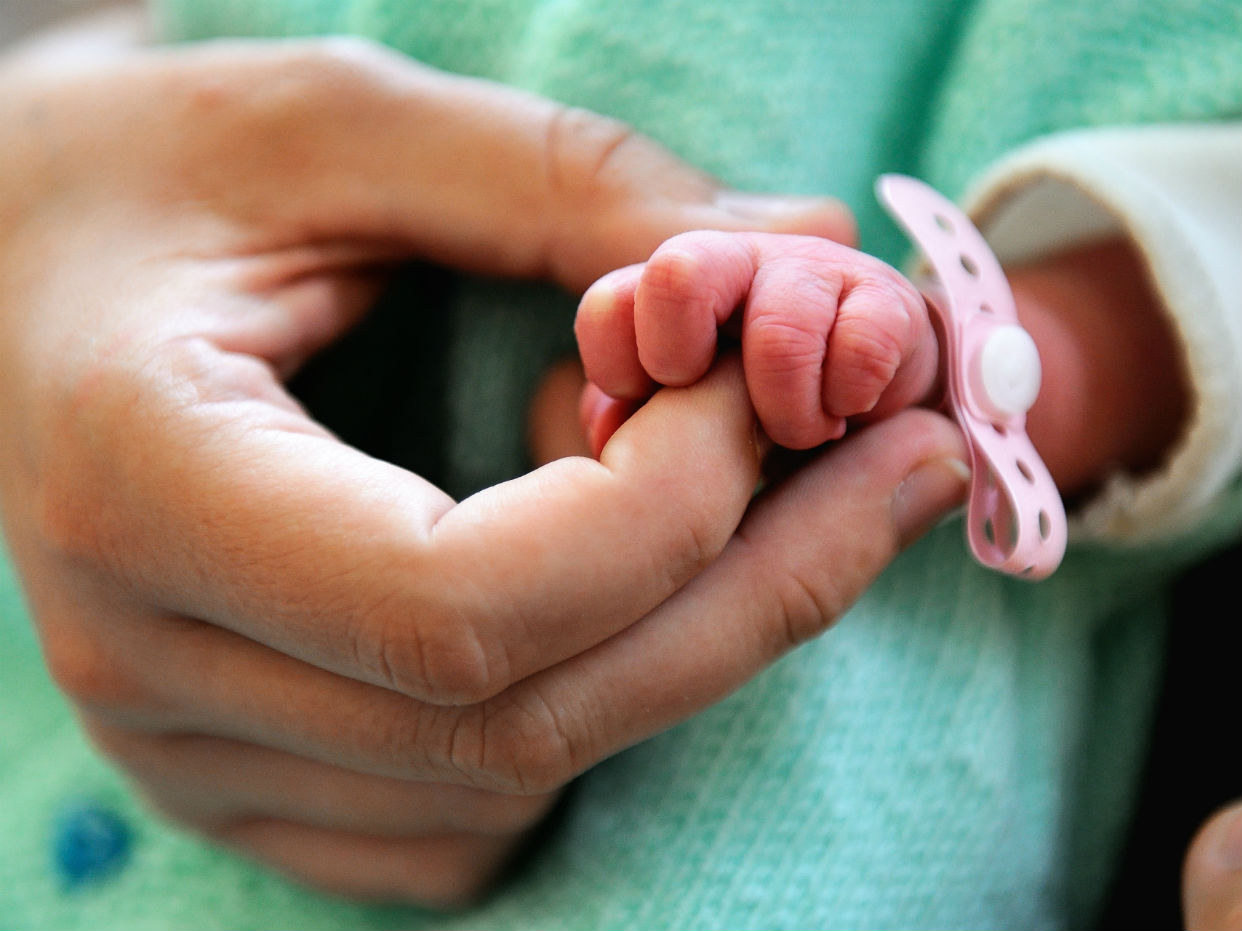Doctors perform first womb transplant from dead donor
Woman in Brazil gives birth to a healthy baby using donated uterus

A free daily email with the biggest news stories of the day – and the best features from TheWeek.com
You are now subscribed
Your newsletter sign-up was successful
Doctors in Brazil have performed the first ever successful womb transplant from a deceased donor, after the recipient gave birth to a healthy baby girl a year on from the operation.
The milestone has been documented in a report published yesterday in medical journal The Lancet.
The 32-year-old recipient was born without a uterus as the result of a condition called Mayer-Rokitansky-Küster-Hauser syndrome, meaning she had been unable to carry a foetus naturally.
The Week
Escape your echo chamber. Get the facts behind the news, plus analysis from multiple perspectives.

Sign up for The Week's Free Newsletters
From our morning news briefing to a weekly Good News Newsletter, get the best of The Week delivered directly to your inbox.
From our morning news briefing to a weekly Good News Newsletter, get the best of The Week delivered directly to your inbox.
Eight fertilised embryos conceived through IVF were frozen while she underwent surgery to receive the donor uterus, which came from a 45-year-old mother of three who died of a stroke.
Fourteen months after the operation, she gave birth to a healthy girl via Caesarean section on 15 December 2017.
Although the first successful uterus transplants took place in 2013, “no case of livebirth via deceased donor uterus has, to our knowledge, been successfully achieved” before now, say the authors of the report.
“The current norm for receiving a womb transplant is that the organ would come from a live family member willing to donate it,” says Al Jazeera, resulting in a narrow pool of potential donors who may not have the ability or willingness to donate their uterus.
A free daily email with the biggest news stories of the day – and the best features from TheWeek.com
The landmark procedure proves the possibility of “treating uterine infertility by transplantation from a deceased donor, opening a path to healthy pregnancy for all women with uterine factor infertility, without need of living donors or live donor surgery”, say the report’s authors.
The Times reports that around 15,000 women in the UK were born without a uterus, while others require a hysterectomy as the result of a medical condition.
Dr Dani Ejzenberg, who led the team, told The Times that he had visited the baby girl last weekend ahead of her first birthday and that she was “doing great”.
-
 How the FCC’s ‘equal time’ rule works
How the FCC’s ‘equal time’ rule worksIn the Spotlight The law is at the heart of the Colbert-CBS conflict
-
 What is the endgame in the DHS shutdown?
What is the endgame in the DHS shutdown?Today’s Big Question Democrats want to rein in ICE’s immigration crackdown
-
 ‘Poor time management isn’t just an inconvenience’
‘Poor time management isn’t just an inconvenience’Instant Opinion Opinion, comment and editorials of the day
-
 Epstein files topple law CEO, roil UK government
Epstein files topple law CEO, roil UK governmentSpeed Read Peter Mandelson, Britain’s former ambassador to the US, is caught up in the scandal
-
 Iran and US prepare to meet after skirmishes
Iran and US prepare to meet after skirmishesSpeed Read The incident comes amid heightened tensions in the Middle East
-
 Israel retrieves final hostage’s body from Gaza
Israel retrieves final hostage’s body from GazaSpeed Read The 24-year-old police officer was killed during the initial Hamas attack
-
 China’s Xi targets top general in growing purge
China’s Xi targets top general in growing purgeSpeed Read Zhang Youxia is being investigated over ‘grave violations’ of the law
-
 Panama and Canada are negotiating over a crucial copper mine
Panama and Canada are negotiating over a crucial copper mineIn the Spotlight Panama is set to make a final decision on the mine this summer
-
 Why Greenland’s natural resources are nearly impossible to mine
Why Greenland’s natural resources are nearly impossible to mineThe Explainer The country’s natural landscape makes the task extremely difficult
-
 Iran cuts internet as protests escalate
Iran cuts internet as protests escalateSpeed Reada Government buildings across the country have been set on fire
-
 US nabs ‘shadow’ tanker claimed by Russia
US nabs ‘shadow’ tanker claimed by RussiaSpeed Read The ship was one of two vessels seized by the US military